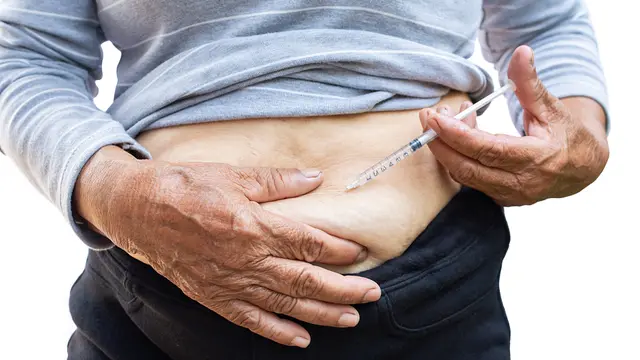According to the World Health Organization (WHO), more than 420 million people worldwide live with diabetes. But the WHO says many struggle to afford the drugsthat keep them alive.
Marcus Thomas is one of those people. He has type 1 diabetes which means that he would die without daily medicine.
He uses an insulin pump which is connected to his stomach. It constantly monitors his blood sugar level and automatically injects him with insulin when he needs it.
His insurance plan covers the medicine. But that hasn't always been the case.
"I do remember specific instances where I was on eBay and Craigslist looking for insulin," says Marcus. "At one point,I bought insulin from a woman whose son had died. And basically,she had some insulin left over and she said she didn't feel like she wanted it to go to waste. And I paid 30 U.S. dollars for what would have cost me probably 400-500 U.S. dollars.”
However, Marcus still pays up to 2,000 U.S. dollars a year for supplies connected with his treatment. His story is not uncommon.The price of insulin has skyrocketed in recent years, jumpingabout300 percent over the past decade.
The American Diabetes Association often hears from patients who are struggling to afford the medicine.
"We hear a lot about people rationing their insulin, which means they're taking less than prescribed by their doctors," says Dr.LaShawn McIver from the American Diabetes Association. "This can lead to serious complications. We've seen many different stories in the news about people who ration their insulin, it can lead to death as well.”
Global insulin prices are largely controlled by three manufacturers, and therefore they can dictate the cost of the life-saving medicine.
WHO says that needs to change. They're asking drug companies to make cheaper, generic versions of the drug, which the WHO would then test.
"If we bring new entrance into the market, we hope to expand the competition and this will have an impact on pricesand will mean that more patients, particularly in lower and middle income countries, have access to the insulin that they need to survive," says Emer Cooke, the Director of Regulation of Medicines at the WHO.
A similarpre-qualification testing program for HIV medicine brought the price down from 10,000 U.S. dollars a year per person, to just 300 U.S. dollars.
The goal of the testing program is to make insulin affordable and available to everyone.
(CGTN)
 简体中文
简体中文

